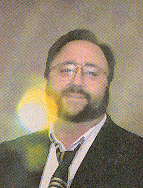PS 1 - Critical Thinking OP-ED Project
Prof. Joe Meyer, LACC

First, find an "Op-Ed" (opinion/editorial) piece in a newspaper, magazine or journal. This is roughly a 250 to 1500 word opinion piece written by some one who is clearly identified (and paid for their opinion). Do not use editorials (they have no "by line") nor "letters to the editor."
Provide the information needed and answer the eight (8) questions LISTED BELOW in brief clauses or words.
"Critical thinking is the art of analyzing and evaluating thinking with a view to improving it"*
A critical thinker:
- raises vital questions and problems, formulating them clearly and precisely. |
|---|
- gathers and assess relevant information and solutions, using abstract ideas to interpret it effectively. |
- comes to well reasoned conclusions and solutions, testing them against relevant criteria and standards. |
| - thinks open mindedly within alternative systems of thought recognizing and assess, as need be, their assumptions, implications and practical consequences. |
- communicates effectively with others in figuring out solutions to complex problems. |
Critical thinking is ... self directed,
... self disciplined
... self monitored
... and self corrective.
Critical thinking requires rigorous standards of excellence, a mindful command of their use, effective communication, problem solving abilities, and a personal commitment to leave your ego and baggage at the door and think for yourself!
For the Assignment...
The Critical Thinking (Op-Ed) Project:
Read an Op-Ed piece.
Include the following information IN THIS ORDER:
Your NAME & Section number
Title of Op-Ed piece, publisher and date
Author of Op-Ed piece.
Answers for number 1 - 8 in order. (Do not include question, answer them IN ORDER and include the number. No need for complete sentences, just use brief bullet points or short clauses to fill in the blanks.
QUESTIONS ABOUT THE OP-ED Article:
1. The main argument (major point) the author is trying to make is ______________.
2. The author is (choose one) "for" or "against" ___________________________________.
3. The most important information (facts, experience, data) (a)_____________.
(b)__________________ (c) ______________________ (etc.)
4. The key concept(s) do we need to understand _________________________________.
5. The author makes the following assumption(s) _______________________________.
6. The conclusion the author draws is _____________________________.
7. The author calls on us to do (or not do) ___________________________________.
8. The other points of view the author has ignored are _________________________.
Example:
Your Name, title, publisher, date, author name
1, ballons are fun
2, pro ballons
3, ETC...
Follow the directions on Canvas, please.
All of the above based on "The Miniature Guide to Critical Thinking Concepts and Tools, by Paul & Elder, www.criticalthinking.org